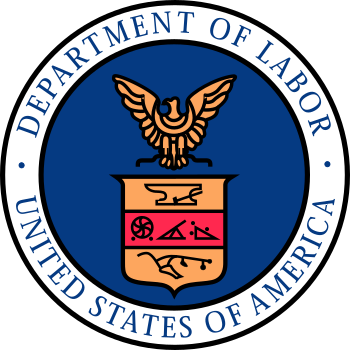President Donald Trump’s first nominee for the Secretary of Labor position, Andrew Puzder, withdrew from consideration in February. Enough Republican Senators had turned against Puzder that it seemed unlikely he would win confirmation. Puzder, who had been the President of a fast-food restaurant chain, had never held a government position. The new Secretary of Labor has a much stronger political resume.
On April 27, 2017, the U.S. Senate confirmed Alexander Acosta as Secretary of Labor by a vote of 60-38. Acosta has served as Dean of Florida University Law School since 2009. He previously held three different Senate-approved federal government positions: member of the National Labor Relations Board, Assistant Attorney General, and U.S. Attorney for the Southern District of Florida.
Acosta is the first Latino member of President Trump’s Cabinet, which is now complete with his confirmation.
Key Issues Facing the Secretary of Labor
Secretary Acosta will have to fill approximately 200 positions among various sub-agencies of the U.S. Department of Labor. This includes a Solicitor of Labor and department heads such as the administrator of the Wage and Hour Division, the assistant secretary for the Occupational Safety and Health Administration (OSHA), and the director of the Office of Federal Contractor Compliance Programs (OFCCP). These selections will ultimately affect the implementation and enforcement of Acosta’s policies regarding federal labor laws.
Two important issues that have constantly been in the news will definitely have to be addressed by the Department of Labor in the coming months.
2016 Rules on Overtime Salary Threshold
In 2016, President Obama’s administration, under then Secretary of Labor (now Chair of the Democratic National Committee) Tom Perez, introduced new Fair Labor Standards Act (FLSA) regulations affecting overtime. The new rules would have raised the salary threshold for several common overtime exemptions from $455 per week to $913 beginning December 1, 2016 (with indexed increases every three years thereafter). However, a federal judge in Texas issued an injunction in late November that prevented the new rule from taking effect.
The Department of Labor has appealed the decision, but has delayed the appeal since President Trump took office. As Republicans strongly opposed the 2016 regulations, it seems unlikely that the current administration would fight to maintain the Obama-era rules. However, the regulations are still on the books, so Secretary Acosta likely will have to take some affirmative action to clarify this issue.
Immigration
The Department of Labor does not directly control U.S. immigration policy. That responsibility falls under the Department of Homeland Security. However, the Trump administration’s early approach to immigration issues has affected the Department of Labor’s enforcement of the laws within its purview. Recent reports indicate, for example, that employees have become reluctant to obtain unpaid compensation from their employers out of fear that they will be deported or suffer other negative consequences based on their immigration status.
Acosta, who was born in Miami to Cuban immigrants, has expressed pro-immigration sentiments in the past.
What To Expect from Secretary Acosta
It seems too early to predict what policies Acosta will pursue as Labor Secretary. Conservatives have expressed concern that he will be too pro-worker, while some Democrats lament that he is only somewhat better than failed-nominee Puzder. Some labor unions have endorsed him, while other worker groups question his commitment to push for employee rights.
This blog will continue to report on federal labor issues as developments occur. For now, we can only generally predict that on the whole, the current administration will be less restrictive on employers than the last one was. But that does not mean that there will be no changes that impact your workplace or require action to maintain compliance. Stay tuned!
